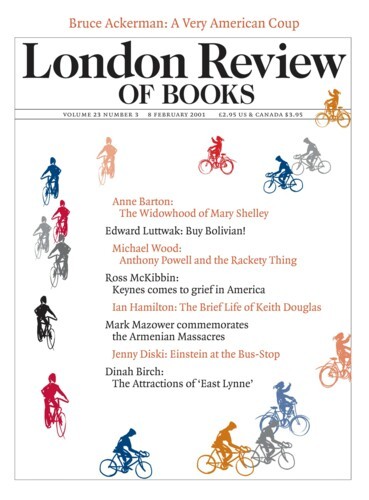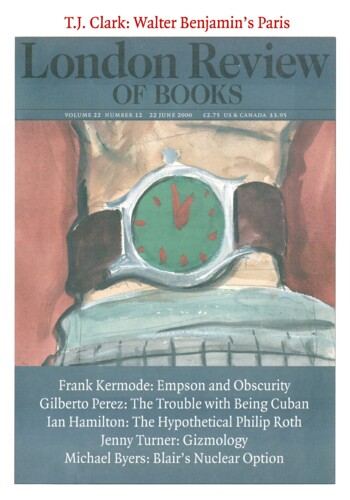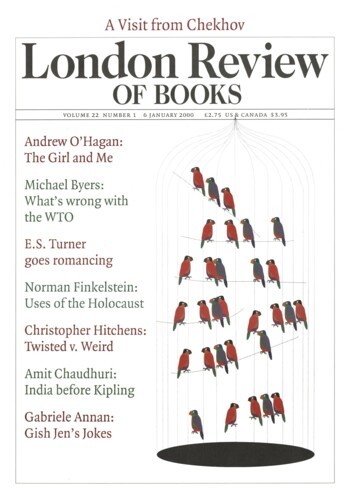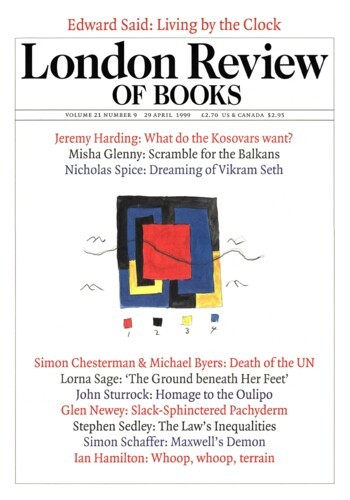Too Close to the USA: Canada’s reluctance to stand up for itself
Michael Byers, 6 September 2001
Canadians make much of something Pierre Trudeau said in a speech to the Washington Press Club in 1969: ‘Living next to you is in some ways like sleeping with an elephant. No matter how friendly and even-tempered the beast, one is affected by every twitch and grunt.’ Canada shares a continental market, the world’s longest undefended border, a language and increasingly a...





